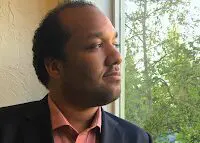Hastings Center News
Winning Essay: “Moral Bioenhancement as Potential Means of Oppression”
Faced with existential threats such as climate change, some scholars argue that “moral bioenhancements,” including psychotropics drugs and other interventions, are needed to improve our collective moral capacity to do the right thing before it’s too late. But moral enhancement could have an immoral effect, argues Timothy Brown in “Moral Bioenhancement as Potential Means of Oppression,” the winner of the 2021 David Roscoe Award for an Early-Career Essay on Science, Ethics, and Society. The essay was published in The Neuroethics Blog of Emory University.
Brown, a National Institutes of Health postdoctoral research associate in the Department of Philosophy at the University of Washington, notes that some commonplace interventions, such as antidepressants and mood stabilizers, could improve our moral capabilities by reducing antisocial, erratic, or aggressive behavior, and the hormone oxytocin is thought to increase altruistic, prosocial behavior. Neurostimulators, such as transcranial direct current stimulation, could have similar effects.
“Arguments in favor of moral bioenhancement, however, fail to consider how marginalized people have been (and still are) accused of being less moral than their oppressors,” Brown writes. “Many of the behaviors that moral bioenhancements would dampen are the behaviors that marginalized people make use of for survival: distrust, disobedience, and—yes—anger.”
Brown argues for caution in embracing efforts to morally-enhance humanity lest they “render marginalized people less critical of the injustices they face.”
The David Roscoe essay award is given annually to recognize an essay on the social and ethical implications of advances in science and technology written in a style that is accessible and engaging to a general audience. Public engagement through writing is a critical commitment of The Hastings Center. The award includes a $2,000 prize.
The award is named in honor of the head of The Hastings Center’s advisory council who is a recent past chair of the board. The award will be presented to Brown at the virtual annual meeting of the American Society for Bioethics and Humanities on October 13.

